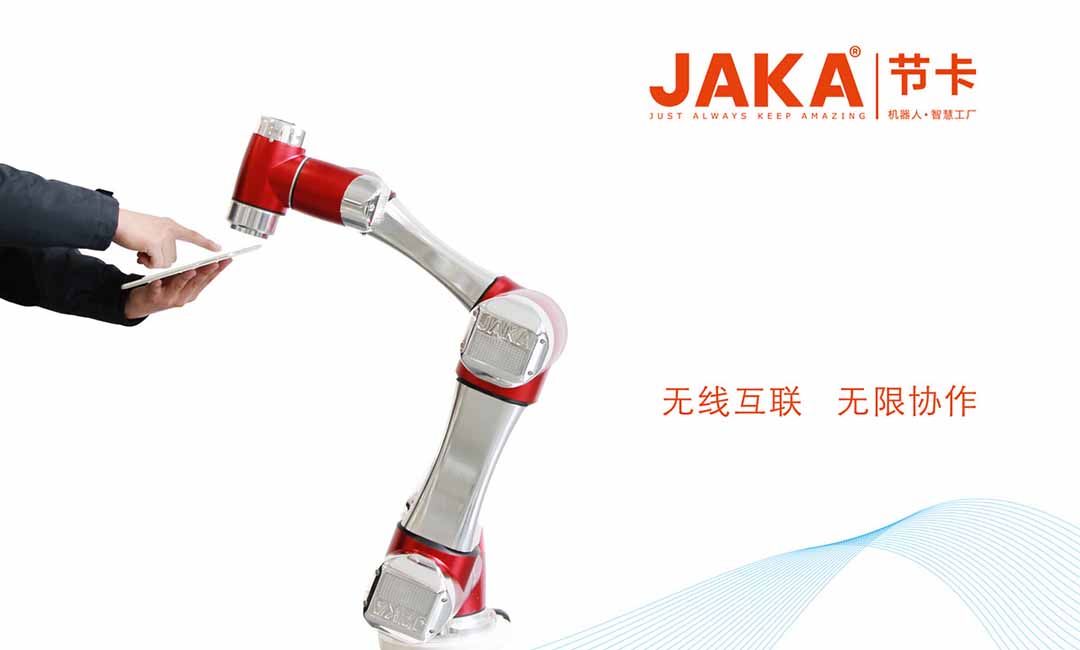The collaborative robot firm Jaka (节卡) has closed a 60 million yuan A-plus round from F&G Venture. It previously secured 15 million yuan in a Series A round from Hejun Capital in March 2016.
Founded in 2014, JAKA operates an R&D center in Shanghai and a manufacturing plant in Jiangsu. Its business consists of three parts: robots, intelligent system integration and production digitization.
The financing will be used to accelerate product supply and expand sales channels, said LI Mingyang, founder and chairman of JAKA. So far, JAKA’s collaborative robots have been put to use extensively in such industries as food, chemical fiber and machining. The company is seeking to penetrate other sectors that are crying out for automation, such as the 3C industry (computers, communications and consumer electronics).
JAKA rolled out its JAKA Zu™ series, a family of collaborative robots, toward the end of last year. The robots use integrated joint actuators and, with all its parts and components optimized, are lighter than ordinary robots.
Apart from optimized components, JAKA Zu’s biggest edge over other collaborative robots on the market is that it supports wireless connection and remote motion planning, which save the cost of demonstrators and remove geographic restrictions.
Most robots are taught movements through demonstrators, which are connected with the robots with wires, or by directly having their arms pulled and dragged around by users, but JAKA’s robots can be wirelessly connected to smart devices, which allows users to instruct the robots to perform the desired tasks simply by working out the motions on JAKA’s app.
Barclays and other organizations estimate that collaborative robots’ percentage of the total sales of robots may surge from 3% in 2017 to 34% or higher in 2025. Meanwhile, LI Mingyang expects his company to generate 200 million yuan in revenue (approx. USD 31.6 million) this year, including around 80 million yuan (approx. USD 12.6 million) from the sales of robots.
Currently, JAKA relies on intelligent system integration as its main source of revenue, said LI. It could rake in as much as several million yuan by designing and deploying a single system.
JAKA boasts big-name clients including Bright Dairy (光明), Mengniu (蒙牛), Want-Want (旺旺) and the spandex manufacturer Xinxiang Chemical Fibre (新乡化纤). They operate at least 100 production lines each and, by introducing JAKA’s solutions, can cut the number of workers per line by nearly 100.
JAKA was incubated at Shanghai Jiaotong University and has established a close tie with the university’s Robot Research Institute. The company has a team of some 70 people and expects to expand to 100 people by the end of this year.
